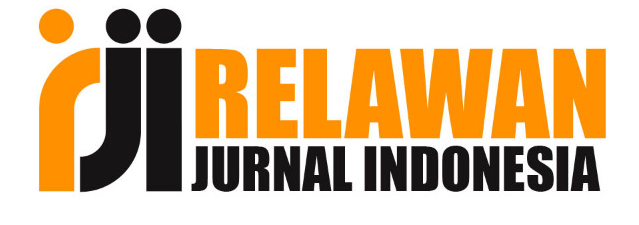Menakar Urgensi Pemberian Insentif Perpajakan bagi Perempuan di Indonesia
DOI:
https://doi.org/10.36982/jpp.v10i2.5248Keywords:
Taxation, Gender-Based Tax, Incentive, Tax PolicyAbstract
The issue of gender equality in Indonesia has begun to penetrate the economic sector because there is a disparity in the wages received by Indonesian women, which are below the global average. Indonesia also experiences relatively high labor force disparities. Women can increase the country's productivity up to IDR 28 trillion, equivalent to 26% of the world's GDP. The government is considering gender equality in decision-making, including in the realm of taxation, one of which is through gender-based taxation. World researchers are also trying to disentangle the justice in taxation with a gender perspective to provide a new perspective in policy formulation for the government. On the other hand, some literature argues the need to apply gender-based taxation incentives in developing countries. This study attempts to unravel the urgency of implementing gender-based taxes in Indonesia and how best practices are from other countries that have implemented gender-based taxation. This study uses qualitative methods with data collection techniques, namely secondary data literature studies. Based on this research, there is an urgent to provide tax incentives to women, especially working married and giving birth woman, as a gender-based taxation embodiment. In addition, it was found that Singapore has implemented a gender-based taxation incentive scheme for women giving birth, and it has been running very well until now.
References
Alesina, A., Ichino, A., & Karabarbounis, L. (2011). Gender-based Taxation and the Division of Family Chores. American Economic Journal: Economic Policy, 3(2), 1–40.
Ardin, G. (2022, April 21). Menggagas Kesetaraan Gender dalam Sistem Pajak Indonesia.
Asmarani, N. G. C. (2021, July 28). Apa Itu Pink Tax?
Avram, S., & Popova, D. (2022). Do Taxes and Transfers Reduce Gender Income Inequality? Evidence from Eight European Welfare States. Social Science Research, 102, 1–12. https://doi.org/10.1016/j.ssresearch.2021.102644
Barnett, K., & Grown, C. (2004). Gender Impacts of Government Revenue Collection: The Case of Taxation. London.
Chen, D. (2010). Integration of Revenue Administration: A Comparative Study of International Experience. The World Bank. https://doi.org/10.1596/978-0-8213-8524-1
Coelho, M., Davis, A., Klemm, A., & Buitron, C. O. (2022). Gendered Taxes: The Interaction of Tax Policy with Gender Equality (No. 22/26).
Colombino, U., & Narazani, E. (2018). Closing the Gender Gap: Gender Based Taxation, Wage Subsidies or Basic Income? (No. 3). Seville.
Creswell, J. W., & Creswell, J. D. (2018). Research Design: Qualitative, Quantitative, and Mixed Methods Approaches (5th ed.). Los Angeles: Sage Publications.
de Blasio, B., & Menin, J. (2015). From Cradle to Cane: The Cost of Being a Female Consumer (A Study of Gender Pricing in New York City). New York.
Duesterhaus, M., Grauerholz, L., Weichsel, R., & Guittar, N. A. (2011). The Cost of Doing Femininity: Gendered Disparities in Pricing of Personal Care Products and Services. Gender Issues, 28(4), 175–191. https://doi.org/10.1007/s12147-011-9106-3
Elvina, L. (2020, July 11). Timpangnya Pendapatan, Jadi Salah Satu Bentuk Kesenjangan Antargender di Indonesia.
Gerintya, S. (2018, May 1). Rerata Penghasilan Perempuan Masih Jauh di Bawah Gaji Laki - Laki.
GIZ Ukraine. (2019). Managing Public Finances Effectively and Transparently. Kyiv.
Grown, C. (2010). Taxation and Gender Equality: A Conceptual Framework. In C. Grown & I. Valodia (Eds.), Taxation and Gender Equity: A Comparative Analysis of Direct and Indirect Taxes in Developing and Developed Countries (1st ed., pp. 1–21). Abingdon: Routledge.
Grown, C., Ozer, C., & Bronchi, C. (2022, July 20). Gender Differences in Taxation: Why Do They Matter?
Guittar, S. G., Grauerholz, L., Kidder, E. N., Daye, S. D., & McLaughlin, M. (2022). Beyond the Pink Tax: Gender-Based Pricing and Differentiation of Personal Care Products. Gender Issues, 39, 1–23. https://doi.org/10.1007/s12147-021-09280-9
Gunnarsson, Å., Spangenberg, U., & Schratzenstaller, M. (2017). Gender Equality and Taxation in the European Union. Brussels.
Harbani, R. I. (2021, July 29). Berapa Banyak Pemuda Usia 21 - 24 di Indonesia yang Lulus SMA? Ini Data BPS.
Isnanto, H. (2022, January 28). Gender-Based Taxation to Be Discussed in G20 Presidency.
Karunia, A. M., & Pratama, A. M. (2022, July 29). Angkatan Kerja Perempuan Masih Rendah, Menaker: Budaya Patriarki Masih Mengakar.
Khoiriyah, A. M. (2020). Perlindungan dan Hak Pekerja Perempuan di Bidang Ketenagakerjaan. IJouGS: Indonesian Journal of Gender Studies, 1(1), 57–66. https://doi.org/10.21154/ijougs.v1i1.2067
Kusnady, F. (1996). Kedudukan Wanita Kawin sebagai Pengusaha dalam Hukum Pajak (Dissertation). Universitas Indonesia, Jakarta.
Laili, M. H., & Damayanti, A. (2018). Kesenjangan Upah Antargender di Indonesia: Bukti Empiris di Sektor Manufaktur. Jurnal Ekonomi Dan Pembangunan Indonesia, 18(3), 1–21. https://doi.org/10.21002/jepi.2018.12
Luthfi Azura, D., & Adi Putri, I. (2024). Gender dan Demokrasi dalam Pemilihan Kepala Daerah Kabupaten Tanah Datar Tahun 2020 . Jurnal Pemerintahan Dan Politik, 9(4 SE-Articles), 282–290. https://doi.org/10.36982/jpg.v9i4.4058
Morel, N., Touzet, C., & Zemmour, M. (2018). Fiscal Welfare in Europe: Why Should We Care and What Do We Know So Far? Journal of European Social Policy, 28(5), 549–560. https://doi.org/10.1177/0958928718802553
Nuraeni, Y., & Suryono, I. L. (2021). Analisis Kesetaraan Gender dalam Bidang Ketenagakerjaan di Indonesia. Nakhoda: Jurnal Ilmu Pemerintahan, 20(1). https://doi.org/10.35967/njip.v20i1.134
OECD. (2022). Tax Policy and Gender Equality: A Stocktake of Country Approaches. https://doi.org/10.1787/b8177aea-en
Perez-Navarro, G., & Harding, M. (2021, March 26). In Tax, Gender Blind is not Gender Neutral: Why Tax Policy Responses to COVID-19 Must Consider Women. March on Gender 2021: Tax and Gender, pp. 1–12. OECD.
Prastowo, Y. (2014). Analisis Kebijakan Perpajakan Indonesia terhadap Perempuan dari Perspektif Teori Kritis (Thesis). Universitas Indonesia, Jakarta.
Prihastomo, T. (2021, March 14). Peran Perempuan dalam Perekonomian Indonesia.
Putri, C. A. (2020, July 1). Kementerian Keuangan Ungkap Masalah Gender dan Ekonomi di RI.
Ramdlaningrum, H., & Asriani, D. D. (2022, April 21). Emansipasi dan Pajak Berkeadilan Untuk Perempuan Indonesia.
Ramsey, F. P. (1927). A Contribution to the Theory of Taxation. The Economic Journal, 37(145), 47–61. https://doi.org/10.2307/2222721
Saint-Paul, G. (2008a). Against ’Gender-based Taxation’. CEPR Discussion Paper No. DP6582, 1–24.
Saint-Paul, G. (2008b). Against Gender-based Taxation: Abolishing Equality before the Law is Wrong and Dangerous. CD 85-6o de Alcance, 7–10.
Setyaningrum, A. (2020). Analisis Kesenjangan Upah Antar Gender Pada Sektor Jasa di Indonesia. Jurnal Ilmiah Mahasiswa Fakultas Ekonomi Dan Bisnis Universitas Brawijaya, 8(2).
Statistics Indonesia. (2018). Rata-Rata Upah/Gaji Bersih Selama Sebulan Buruh/Karyawan Laki-Laki dan Perempuan Menurut Provinsi dan Wilayah Perkotaan.
Stotsky, J. G. (1996). Gender Bias in Tax System.
Susilowati, R., Khairunnas, K., Rafinzar, R., & Tamsyah, I. (2024). Pengarusutamaan Gender dalam Perspektif Strukturasi: Analisis Penyelenggaraan Organisasi PKK pada Pembangunan Desa . Jurnal Pemerintahan Dan Politik, 9(2 SE-Articles), 104–115. https://doi.org/10.36982/jpg.v9i2.3631
Taranandita, S. (2023). Perspektif Gender dalam Kebijakan Tax Reliefs pada Pajak Penghasilan Orang Pribadi di Indonesia (Unpublished thesis). Universitas Indonesia, Jakarta.
The Government of the Republic of Indonesia. General Taxation Provisions and Procedures. , Pub. L. No. No. 28 Year 2007, Law (2007). The Republic of Indonesia.
The Government of the Republic of Indonesia. Taxation Rights and Obligations Fulfilment Procedure. , Pub. L. No. No. 74 Year 2011, Government Regulation (2011). The Republic of Indonesia.
The Ministry of Finance. Technical Guidelines on the Procedures for the Withholding, Payment, and Reporting of Article 21 Income Tax and Article 26 Income Tax in Relation to Works, Services, and Activities of Individual Persons. , Pub. L. No. PER-16/PJ/2016, Director General of Taxes Regulation (2016). The Republic of Indonesia.
The Ministry of Women Empowerment and Child Protection. (2021). Pembangunan Manusia Berbasis Gender 2021 (S. Angraini, A. P. Bungsu, Nurhayati, & W. Bodromurti, Eds.). Jakarta: The Ministry of Women Empowerment and Child Protection.
Trihusodo, P. (2021, April 22). Kontribusi Ekonomi Kaum Perempuan untuk Negeri.
UN Women. (2015). Progress of the World’s Women 2015-2016: Transforming Economies, Realizing Rights.
UNDP (United Nations Development Programme). (2022). Human Development Report 2021-22: Uncertain Times, Unsettled Lives: Shaping our Future in a Transforming World. New York.
United States Government Accountability Office. (2018). Consumer Protection: Gender-Related Price Differences for Goods and Services.
Wahyuni, P. E. (2021a, August 20). Melihat Penerapan Kebijakan Pajak Terhadap Perempuan. DDTC News.
Wahyuni, P. E. (2021b, August 20). Melihat Penerapan Kebijakan Pajak Terhadap Perempuan.
Widodo, A., Priadana, D. N. A., Ardana, P. S., & Fabillah, A. D. N. (2020). Women Tax Care: Kebijakan, Penerapan, Potensi, dan Hambatan. JABT: Jurnal Administrasi Bisnis Terapan, 3(1), 59–71.
Woetzel, J., Madgavkar, A., Sneader, K., Tonby, O., Lin, D.-Y., Lydon, J., … Gubieski, M. (2018). The Power of Parity: Advancing Women’s Equality in Asia Pacific. Brussels.
World Economic Forum. (2016). The Global Gender Gap Report 2016. Geneva.
World Economic Forum. (2019). Global Gender Gap Report 2020. Geneva.
World Economic Forum. (2021). Global Gender Gap Report 2021. Geneva.
Young, C. (2003). Tax Policy, Theoretical Explorations, and Social Realities. Canadian Tax Journal, 51(5).











